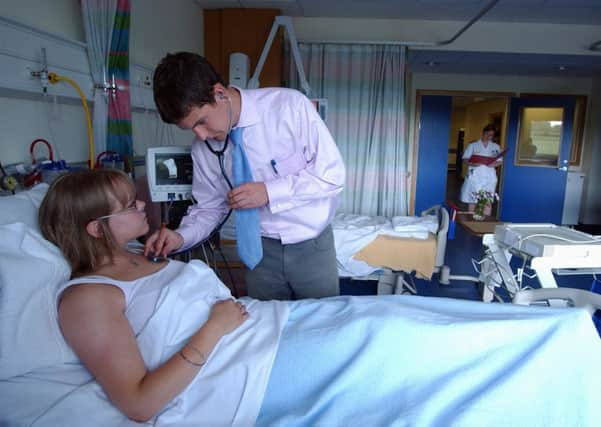Scotland’s bed blocking crisis worsens


Delayed discharges - or bed blocking - happen when patients are ready to leave hospital but their necessary care, support and accommodation arrangements are not yet in place.
In July this year, 274 patients in Scotland were forced to wait more than four weeks after they were ready to lave hospital, according to newly published statistics - a figure that compares to 173 in April and 118 in July last year.
Advertisement
Hide AdAdvertisement
Hide AdThere was also a 300 per cent increase in the number of patients waiting over 6 weeks for discharge in the last year alone, official health figures for Scotland’s NHS showed.
The latest figures for the quarter from April to June 2014 show that there were 149,226 bed days occupied - a sharp rise of 30,000 on the rate two years ago.
Scottish Liberal Democrat health spokesperson Jim Hume, said: “The increasing trend of bed blocking shows just how bad problems with capacity have become. Instead of driving down the numbers of bed days occupied, they have soared by over 30,000 in just two years under the SNP.”
The Scottish Government said it has set up a task force with the local government group Cosla to tackle the problem and
deliver “immediate improvements.
Health secretary Alex Neil said: “We have come a considerable way in tackling this problem, with comparable figures for 2006 showing three times as many people were delayed for over four weeks.”
SEE ALSO: